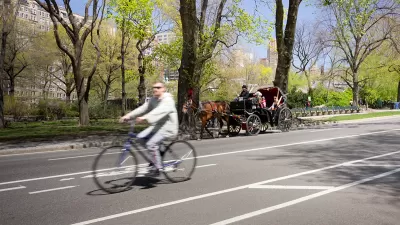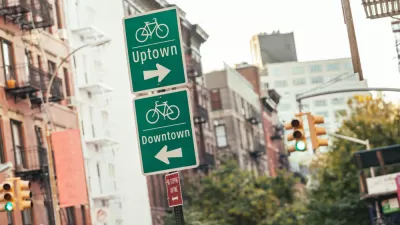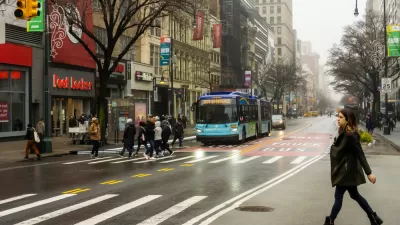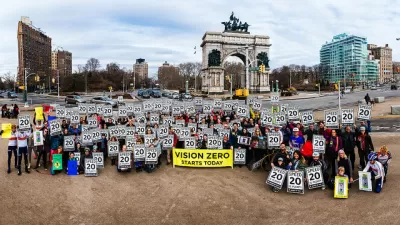The New York City Council is expected to pass a "Streets Master Plan" this week that City Council Speaker Corey Johnson describes as designed to "break the car culture."

"Mayor Bill de Blasio says he now supports a City Council proposal to drastically reshape streets in favor of cyclists, bus riders, and pedestrians—provided, that is, the project's ambitious benchmarks don't kick in until after he leaves office," reports Jake Offenhartz.
City Council Speaker Corey Johnson first proposed the "Streets Master Plan" shortly after taking the leading role in council, and proposed official legislation for the plan in May. The Streets Master Plan, "would require the city to build 250 miles of protected bike lanes and 150 miles of dedicated bus lanes over a five-year period, among a slew of other street-level commitments," according to Offenhartz, and is expected to be approved by the City Council this week.
"The mayor had previously declined to support the legislation, expressing reservations about balancing the needs of communities, while touting his own Vision Zero plan as sufficient," according to Offenhartz.
Emma G. Fitzsimmons first reported the news of the compromise between the mayor and the council that cleared the way for the legislation to pass in the New York Times.
Add this $1.7 billion plan to the recent effort to block cars from 14th Avenue to make room for buses, a forthcoming congestion pricing scheme, and the mayor's own "Green Wave" plan, and New York City is heading toward some very tangible changes in how it manages its traffic flows.
Yet another article published today by the New York Times, written by Corey Kilgannon, explains more about the tragic history motivating the politics of the traffic safety push in New York City.
FULL STORY: De Blasio Supports 'Transformative' Safe Streets Plan, Just Not On His Watch

Planetizen Federal Action Tracker
A weekly monitor of how Trump’s orders and actions are impacting planners and planning in America.

Maui's Vacation Rental Debate Turns Ugly
Verbal attacks, misinformation campaigns and fistfights plague a high-stakes debate to convert thousands of vacation rentals into long-term housing.

Restaurant Patios Were a Pandemic Win — Why Were They so Hard to Keep?
Social distancing requirements and changes in travel patterns prompted cities to pilot new uses for street and sidewalk space. Then it got complicated.

In California Battle of Housing vs. Environment, Housing Just Won
A new state law significantly limits the power of CEQA, an environmental review law that served as a powerful tool for blocking new development.

Boulder Eliminates Parking Minimums Citywide
Officials estimate the cost of building a single underground parking space at up to $100,000.

Orange County, Florida Adopts Largest US “Sprawl Repair” Code
The ‘Orange Code’ seeks to rectify decades of sprawl-inducing, car-oriented development.
Urban Design for Planners 1: Software Tools
This six-course series explores essential urban design concepts using open source software and equips planners with the tools they need to participate fully in the urban design process.
Planning for Universal Design
Learn the tools for implementing Universal Design in planning regulations.
Heyer Gruel & Associates PA
JM Goldson LLC
Custer County Colorado
City of Camden Redevelopment Agency
City of Astoria
Transportation Research & Education Center (TREC) at Portland State University
Jefferson Parish Government
Camden Redevelopment Agency
City of Claremont





























